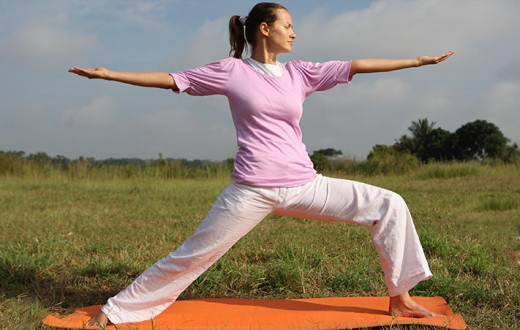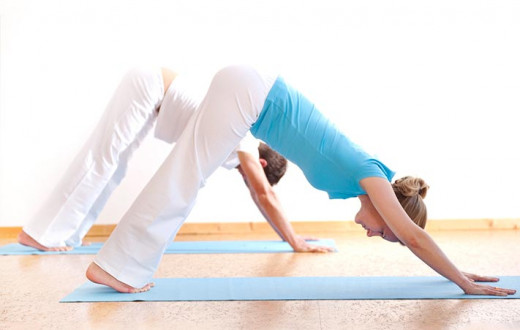
Sleep is one of the most essential aspects of our physical and mental well-being. But what if we are not getting the rest we need from our sleep? Being tired all the time is a drag! So here are six helpful tips on how to sleep better.
These sleep tips will help you not just sleep better, but sleep smarter! Read on so you can say goodbye to feeling tired all the time.
In the mood for meditation right now? You can try this meditation for better sleep led by Art of Living founder, Gurudev Sri Sri Ravi Shankar.
Tip #1 Eat and drink your way to better sleep
What we eat and drink throughout the day can impact our ability to fall asleep, stay asleep, and even the quality of our sleep.
Being mindful of how much caffeine we consume, especially later in the day, can help our bodies and minds be more relaxed and ready for sleep by bedtime. Sleep experts suggest avoiding caffeine at least six hours before bedtime. Alcohol, though viewed as a relaxant by many, can have a negative effect on sleep quality.
The best advice is to monitor your use of caffeine and alcohol and make adjustments as you and/or your doctor determine is best for you.
Having sufficient time between your evening meal and bedtime helps your food digest so your body is ready for sleep. Nutritionists suggest having a minimum of 3 hours between eating and sleeping. If you eat food too close to bedtime, your body won’t be able to relax when it comes time to sleep. Also avoiding spicy foods in the evening hours can be helpful.
Foods naturally higher in melatonin signal to the brain that it’s time to sleep. You can try eating kiwis, nuts, red grapes, or tart cherries throughout the day. Don’t worry, you won’t fall asleep eating these snacks during the day. Once you are ready for bed your body will have the melatonin it needs.
If you want something right before bed, try some warm milk. You can increase the effectiveness of warm milk by making it according to the ancient science of Ayurveda. Golden milk in particular has gained popularity as a yummy sleep aid.
Tip #2 Unwind and relax before bed
The moment our feet hit the floor in the morning we are typically going at top speed. If we aren’t able to hit the pause button during the daytime, we might struggle to unwind and relax when it comes time to go to bed. It’s almost as if our “go” pedal gets stuck in the on position.
So how can we unwind and relax so we can sleep at night?
Carving out a few minutes to relax throughout the day is helpful. Try any of these short relaxation techniques.
Go for a 5-minute walk (in nature if you can)
Take 5—as in 5 minutes for a relaxing breathing exercise
Do a little light yoga for a few minutes
Factoring a little relaxation into your day can help prep your body for the night to come. This way, your body, and mind will be more ready to let go and fall asleep.
Try these relaxing activities before bed:
Unplug and put away electronics
Do a late-afternoon or early-evening meditation
Spend some time writing or reading
If you have trouble falling asleep, you can try one of the following:
Drink a little tart cherry juice
Try a body scan guided meditation, also known as Yoga Nidra
Learn ocean breath, also called Ujjayi breathing (taught on the SKY Breath Meditation course)
Tip #3 Make your bedroom more sleep-friendly
Is your bedroom a sleep-friendly space? Your environment needs to be conducive to sleeping. Having good sleep hygiene starts with making sure your bedroom is more than just clean and quiet. Let’s do a little check!
Are there bright city lights invading your sleep space?
Try black-out curtains to help darken the room so you can fall asleep more easily. Soft lighting leading up to bedtime is also helpful.
Is your bedroom stuffy and hot?
The right ventilation and temperature, depending on the climate, will facilitate better sleep. This might mean cracking open the window or having it wide open. Turning down the thermostat so your bedroom isn’t too warm can also help.
Is your sleep space also a workspace?
Is your home office in your bedroom? If it is, you might want to consider moving your office stuff out. If moving isn’t an option, at least remove gadgets like phones, laptops, and tablets from your sleep area before bedtime.
What are you wearing to bed?
Even your pajamas can contribute to sleeplessness. Dress comfortably to better facilitate a good night’s sleep. Loose-fitting, natural fabrics will help your body to cool or stay warm depending on the season.
Tip #4 Be consistent with your bedtime
“Early to bed, early to rise, makes a man healthy, wealthy and wise,” goes the famous kindergarten rhyme. There’s a good chance that we don’t always follow this excellent elementary school advice as adults.
Most of us need more sleep than we are getting. A sound sleep of 6 to 8 hours is the minimum needed for the mind and body to recharge. But screen addiction and other obstacles can make it challenging to get to bed at a decent time.
The more consistent you are with your bedtime routine the more your body and mind will automatically settle down when it’s time for bed. Our internal clock, also known as circadian rhythm, naturally controls our sleep cycles.
But how many of us are in tune with these natural rhythms? Making a conscious effort to unplug when the sun sets will go a long way towards being in harmony with your circadian rhythm.
Tip #5 Meditate every morning
Can meditating in the morning help you sleep better at night? Yes! Meditation has a way of regulating your body and mind in positive ways you might not expect. Better sleep is one of the unexpected benefits of meditating regularly. Read our meditation sleep guide to learn more.
Tip #6 Your breath can help you sleep better
Take a deep breath in and let it go—is all too familiar advice, as well as instruction given during breathing exercises for more calm.
Besides using breathing exercises to relax, you can also learn SKY Breath Meditation (Sudarshan Kriya). Research shows that SKY practitioners experience enhanced deep sleep. That means you can say goodbye to feeling tired all the time!
What else can SKY do for you? Need stress relief? SKY has shown as much as a 78% reduction in serum cortisol (stress hormone) levels. No wonder many SKY practitioners report getting better sleep after beginning their practice.
How can you learn SKY Breath Meditation?
Just attend a free breath and meditation session online to get started on your SKY journey. A SKY instructor will share more about SKY and help you take the next step on your way to sleep better! Click here to choose the best time for you.




















